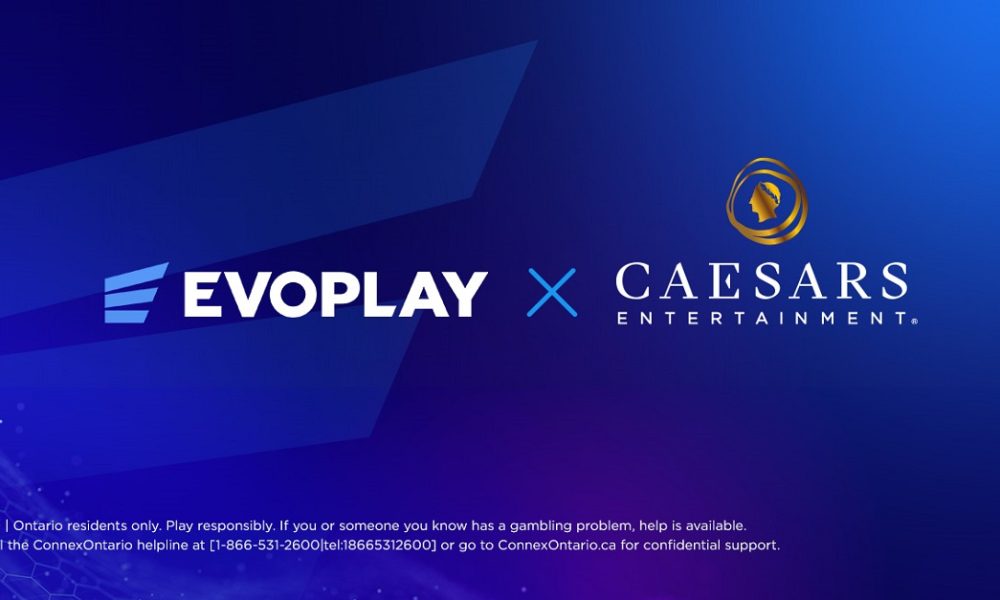

Canada
Mintas’ PlayUp restraining order revoked in US court
Nevada’s District Court has denied PlayUp’s emergency motion for a preliminary injunction against its former US CEO, Dr Laila Mintas.
At a hearing last week, Judge Gloria Navarro ruled that PlayUp had failed to demonstrate that it was Mintas’ actions that led to the collapse of the operator’s acquisition by crytpocurrency exchange FTX.
Instead, she said that evidence provided in Mintas’ defence successfully demonstrated it was “just as likely or more likely” that the deal collapsed as a result of group CEO Daniel Simic’s actions.
Mintas’ memorandum submitted to the court between Christmas and New Year revealed that once the $450m acquisition price was agreed, Simic attempted to insert a number of additional costs into the agreement.
He looked to have FTX acquire PlayChip, a decentralised utility token designed for the betting and gaming sector controlled by PlayUp’s Australian management, for an additional $105m. Simic also attempted to secure $65m for “key staff”, including $25m for himself.
PlayUp’s argument centred on the fact that after Mintas had been asked not to attend a meeting with FTX in the Bahamas, she met with the business separately. After that meeting, FTX emailed the operator’s management to say it would not be pursuing the acquisition.
As FTX cited a lack of communication between the US and global businesses, PlayUp claimed that was evidence that Mintas’ meeting had led to the deal’s collapse. However the email also flagged potential conflicts of interest caused by the condition that PlayChip be acquired as well.
The judge noted this email was not provided to the court by PlayUp, despite it being relevant and placing things in a “much different light”. “[It’s] just more likely that this point, in my mind, that Dr Mintas was exercising her executive responsibility and that she was turned into the scapegoat.”
In her ruling, Judge Navarro noted that when she initially granted the temporary restraining order in December, an affidavit from Simic implied circumstantial evidence of Mintas threatening to “burn PlayUp to the ground”. Having reviewed Mintas’ evidence, the judge said she was less sure “whether the statement was even made”.
Ultimately, Navarro said that Mintas had provided substantial evidence that her comments did not cause the sale to fail, and PlayUp failed to provide evidence that she even made a disparaging comment to FTX.
In response to the injunction being denied, Mintas has filed claims for damages in excess of $75,000. She accuses PlayUp of abuse of process, after it deliberately omitted key information from its filing for a temporary restraining order.
She also claims relief for defamation, arguing the operator caused her to suffer “irreparable harm to her reputation, loss of income, devaluation of her shares, among other damages”. PlayUp also portrayed her in a false light by making these claims, and intentionally inflicted emotional distress on her.
The operator’s repeated reassurances that she was to be awarded a new contract, which was highlighted as causing the breakdown in the relationship between Mintas and PlayUp, makes the business guilty of “guilty of oppression, fraud and malice”, she argues. The fact it claimed to be finalising her contract while having no intention of doing so amounts to fraud, as she did not seek alternative employment during this period.
Finally, due to a separate temporary restraining order being secured in PlayUp’s home market of Australia, Mintas is seeking a declaratory judgement that the Australian injunction has no force or effect.
Based on the evidence provided in the US District Court, she argues that it is no more than an attempt to “gag” her, and ultimately as she is not a citizen of the country, should be made inadmissible.
While Mintas remains unable to comment due to this ongoing litigation, her legal representation stressed that she “strongly denies [PlayUp’s] allegations and will fight vigorously against the remaining claims and prosecute her counterclaims”.
Canada
absolutebet Secures AGCO Registration as an Internet Gaming Operator in Ontario

Internet Gaming Operator by the Alcohol and Gaming Commission of Ontario (AGCO).
This significant milestone authorizes absolutebet to offer regulated iGaming services in Ontario’s legal market under the oversight of AGCO and iGaming Ontario (iGO).
The registration marks a key step in absolutebet’s mission to bring a trusted, responsible, and innovative online casino experience to Ontario players. absolutebet is committed to operating with integrity and transparency, meeting all provincial standards for player protection, responsible gambling, anti-money laundering, and game integrity.
“Securing AGCO registration is more than a milestone—it’s the start of absolutebet’s journey in one of the most exciting regulated markets in the world,” said Chen Truman, Founder of absolutebet. “We are building a brand that will grow with the Ontario community and set the stage for future expansion.”
On the regulatory milestone, Krisztina Kalla, Legal & Regulatory Compliance Advisor of absolutebet, commented: “I’m incredibly proud to see all the hard work behind this license pay off. Securing AGCO registration has taken months of preparation and close collaboration with regulators and partners. I am very happy to see the result of that work, and even more excited as we move into the launch phase and open up the absolutebet community to Ontario players in a fun and responsible way.”
Ontario is recognized as one of the most competitive and fast-growing regulated iGaming markets in North America. With AGCO registration secured, absolutebet will move forward with the final stages of its iGO onboarding process in preparation for launch.
The post absolutebet Secures AGCO Registration as an Internet Gaming Operator in Ontario appeared first on Gaming and Gambling Industry in the Americas.
Alex Malchenko Head of Sales at Evoplay
Evoplay strengthens Ontario presence in partnership with Caesars Entertainment

Evoplay, the award-winning game development studio, has partnered with Caesars Entertainment to expand its footprint in the Canadian market, following its initial entry earlier this year. The partnership integrates 20 of the studio’s top-performing titles onto Caesars Palace Online Casino, Horseshoe Online Casino and Caesars Sportsbook & Casino in Ontario, including fan-favourites such as Hot Triple Sevens, Triple Chili, and The Greatest Catch Bonus Buy.
Having announced its official entrance into Ontario in March, the collaboration with Caesars marks a significant step in Evoplay’s local strategy. Further standout releases, such as Inner Fire Bonus Buy and Hot Volcano, also launched as part of the initial package, with additional player favourites, including Fruit Nova and Ice Mania.
The collaboration underlines Evoplay’s commitment to working with leading operators to deliver high-quality content tailored to regional audiences.
Alex Malchenko, Head of Sales at Evoplay, said: “Launching with Caesars in Ontario marks a key milestone in our North American strategy.
“It reflects both the strength of our portfolio and our commitment to providing innovative, high-performing content to operators of the highest caliber.”
Ricardo Cornejo Rivas, Vice President of Online Gaming at Caesars Digital, said: “Evoplay brings a fresh and dynamic approach to online gaming, which we’re excited to offer to our players in Ontario. This portfolio of standout titles adds to our growing content library and furthering our ongoing goal of delivering top-tier entertainment experiences to our players.”
The post Evoplay strengthens Ontario presence in partnership with Caesars Entertainment appeared first on Gaming and Gambling Industry in the Americas.
Canada
iGaming Ontario Appoints Joseph Hillier as its New President and CEO

The iGaming Ontario Board of Directors has announced Joseph Hillier as the organization’s new President and Chief Executive Officer, effective September 8, 2025. Joseph’s depth in the Ontario igaming market combined with successful public and private sector careers make him the ideal President and CEO at this critical point in iGaming Ontario’s growth.
Joseph was most recently Chief Strategy Officer and Corporate Secretary at the Alcohol and Gaming Commission of Ontario (AGCO), where he delivered significant strategic and regulatory initiatives across the province’s alcohol, cannabis, gaming, and horse racing sectors. Prior to the AGCO, he served as Chief of Staff to Ontario Attorney General Hon. Doug Downey and led the development, launch and implementation of Canada’s first private sector-driven igaming market and the creation of iGaming Ontario. Joseph also spent more than a decade working in the financial and legal services sectors.
The Board expressed its sincere thanks to David Smith for serving as Interim President and Chief Executive Officer since Martha Otton’s retirement.
The post iGaming Ontario Appoints Joseph Hillier as its New President and CEO appeared first on Gaming and Gambling Industry in the Americas.
-

 gaming3 years ago
gaming3 years agoODIN by 4Players: Immersive, state-of-the-art in-game audio launches into the next generation of gaming
-
EEG iGaming Directory8 years ago
iSoftBet continues to grow with new release Forest Mania
-
News7 years ago
Softbroke collaborates with Asia Live Tech for the expansion of the service line in the igaming market
-
News7 years ago
Super Bowl LIII: NFL Fans Can Bet on the #1 Sportsbook Review Site Betting-Super-Bowl.com, Providing Free Unbiased and Trusted News, Picks and Predictions
-
iGaming Industry8 years ago
Rick Meitzler appointed to the Indian Gaming Magazine Advisory Board for 2018
-
News7 years ago
REVEALED: Top eSports players set to earn $3.2 million in 2019
-
iGaming Industry8 years ago
French Senator raises Loot Boxes to France’s Gambling Regulator
-
News7 years ago
Exclusive Interview with Miklos Handa (Founder of the email marketing solutions, “MailMike.net”), speaker at Vienna International Gaming Expo 2018









